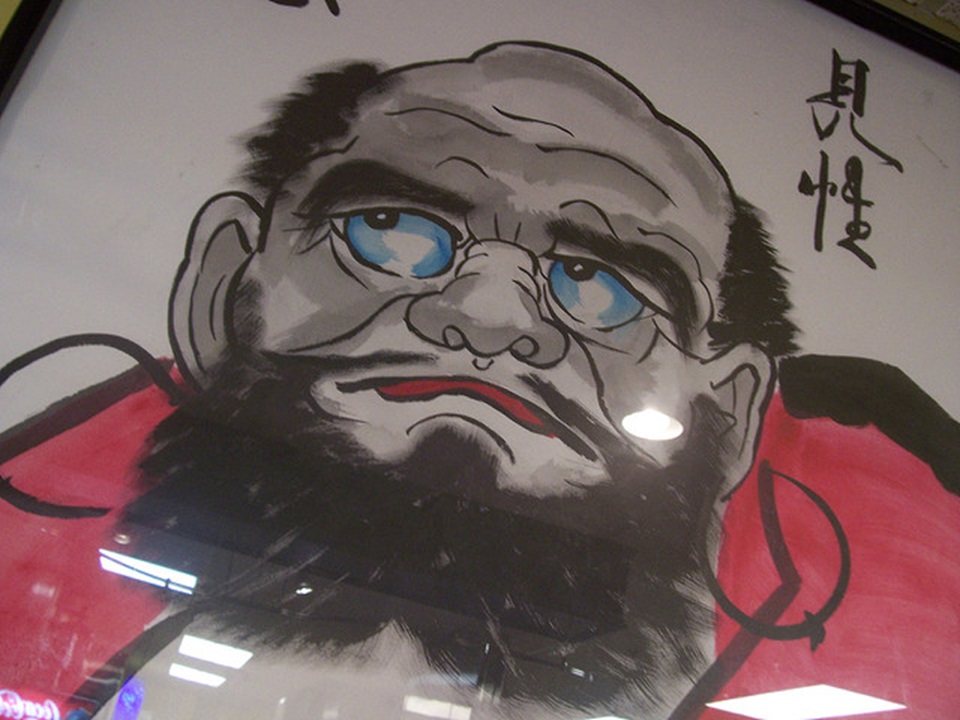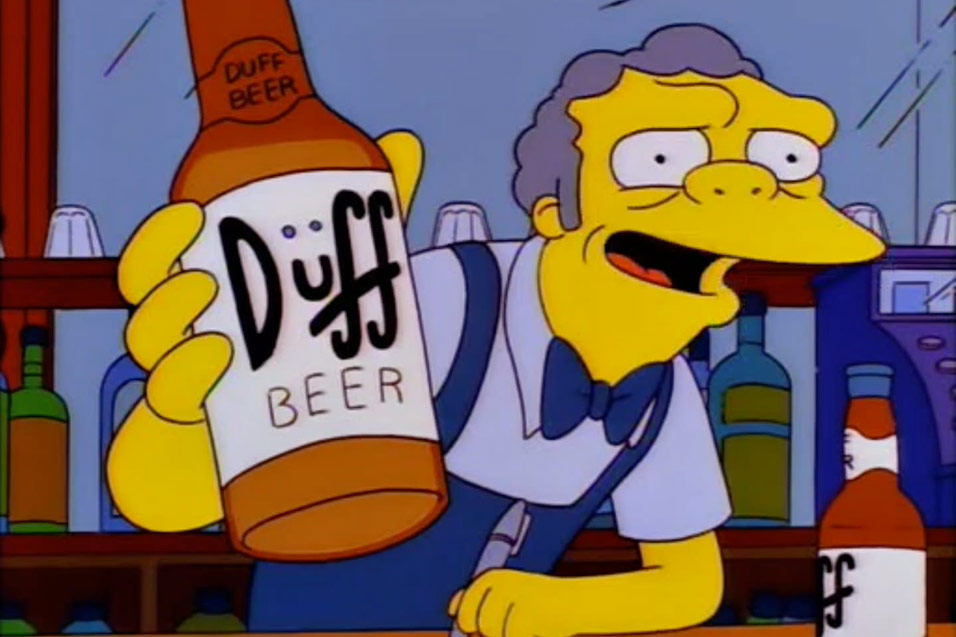Our everyday type of ‘consciousness’ (so-called consciousness) is a prison. This sounds like hyperbole, but it isn’t – this is a very straightforward statement and it’s not some kind of loose poetic metaphor. Our everyday consciousness functions exactly as a prison. If we were to think about it in any other way then that would be a delusion. Any ideas we might have about what benefits we might possibly receive as a result of some action or other that we might take on the basis of our everyday consciousness is a total illusion; there are no benefits to be had when we’re operating on this basis, none whatsoever. The only benefit would be to be free from it, free from the institution of thought. As Gurdjieff says, the only thing that really matters when you’re in prison is escaping.
‘Why is our regular type of consciousness a prison?’ we might ask. Aren’t we free to go anywhere we want, and – within reason – to do anything that we want to do? Again, however, as we’ve just said, this isn’t true at all – we are absolutely not free to go wherever we want go or do whatever we want to do. It only seems like that, when we don’t examine the matter too closely. It’s a very thin illusion. The point is that our regular state of consciousness is not consciousness at all but only an analogue of it – it’s something that stands in for consciousness, but which is actually completely different. This analogue (or substitute) is simply the thinking mind.
The thinking mind contains zero freedom and so whatever we do on this basis also contains zero freedom – freedom can’t come out of the lack of freedom. No purposeful action (of any sort) can ever lead us to freedom since all of our purposes are provided for us by the thinking mind. We can very easily see why the Realm of Thought contains no freedom: when we exist in this realm then all we’re allowed (by the mechanics of the situation) to relate to (i.e., all that we are allowed to recognise as real) is stuff that has been defined. Here, what is defined is ‘real’ and what is not defined doesn’t come into the picture at all; what is undefined is ‘automatically excluded from our awareness’ – it’s excluded so thoroughly that we don’t know that anything has been excluded and so we can see this as a type of forgetting. We’ve forgotten all about the ‘Bigger Picture’, we’ve forgotten that there ever was such a thing as ‘freedom’…
Everything has to be defined in the Realm of Thought because that’s what thought is – thought is ‘the act of defining’. In this abstract realm we can only relate to what has been previously defined, what has been previously said to exist, and so here is the lack of freedom that we’re talking about. If it were the case – hypothetically speaking – that the things which have been defined are the only things that exist (which is as we have said, thought’s unspoken premise) then there would be no loss of freedom, since there would be no freedom there to lose in the first place. If – on the other hand – it were to turn out to be the case that definition is a meaningless exercise, and that, actually, the undefined isn’t unreal (since thought doesn’t have the power to say what is real and what isn’t) then this means [1] that there is such a thing as freedom, and [2] that we have indeed lost it. If thought’s implicit premise is wrong – i.e., if it’s not true that ‘only things which have been defined are real’ – then to be curtailed in such a way that we can only ever relate to what the TM has previously listed as being real is the most fundamental loss of freedom there ever could be.
It’s not that thought has only defined a small part of the world and that there is still an awful lot out there waiting to be defined or catalogued (which is a way of looking at things that most of us would probably be quite happy about) but rather that nothing which has been defined is real, and that we are wholly incapable of knowing what reality is. When we say (or when thought says) that ‘something is real’ then this is a positive act – we determine what should be defined as real and so what we’re talking about here is a projection. It’s a projection because it’s coming from thought, because it’s coming from us. Thought is the boss here; thought is the Great Dictator. Positive action can never be anything other than a ‘redundant exercise’, projection can never be anything other than a ‘hollow device’. Or – as we could also say – living on the basis of thought can never be anything more than a prolonged exercise in futility. We imagine that there is the possibility of finding freedom as a result of our positive activity – which is of course where the motivation to carry on comes from – but there’s no freedom in redundancy.
‘Redundancy’ means that we get to re-express our starting-off point (via the operation of whatever purposeful procedure it is that we’re engaged in) and if the outcome of what we’re doing is contained in our starting-off point then there clearly can’t be any possibility of freedom arising. Freedom is where we can leave our starting-off point behind! When we project the whole world then this is a world with no freedom in it therefore, and yet ‘projecting a world’ is what we do all the time. We don’t know that we’re doing it however. We don’t know that we are ‘projecting a positive world wherever we go’, we have no sense of this at all; if we did have the experience of ‘projecting the world’ then this would of course be to have the experience of solipsism, which is a nightmare. Nobody would want that. This is an exotic form of awareness however – what generally happens is that we project a positive world without ever being any the wiser about it, which means that we’re dreaming. We’re dreaming that we’re free when we aren’t; we’re dreaming that they are real and highly profitable possibilities only just around the corner and there aren’t. This is the nature of the Great Dream that we caught up in, that we should go around thinking that we’re free (or that we stand a chance of becoming free) when nothing could ever be further from the truth.
In this dream we see everything backwards – we see our projected goals as glittering with the promise of freedom and so we are correspondingly enthusiastic about them; it is of course our national pastime to be bubblingly enthusiastic about achieving our goals! This is ‘seeing things backwards’ because these goals of ours are precisely what prevent us from ever being free, just as well as being what prevents us from seeing that we’re not free. No one who is chasing a projection can be free! My goal is my projection, and my projection is my goal, and so this is a closed loop. The ‘trick’ of the dream – the trick that turns it into such an effective prison – is the re-presentation of where we started off from as something new and exciting, as something that is full of genuine promise. The perception that our projections aren’t projections, and that they do therefore have the potential to lead us somewhere new and exciting, comes at a price however; it comes at a price because we can only enjoy our attractive projections to the extent that we get to fear and dread the aversive ones. That’s the only way it can work – if we wish to have pleasant illusions to distract ourselves with then we are obliged to have the unpleasant ones too…
If we were to look at this principle as it applies to thought, we could say that thought can only exist because every <YES> is balanced by corresponding <NO>. This isn’t saying anything different because ‘thought is the dream and the dream is thought’. The analogue of consciousness can only function as an analogue – which is to say, it can only appear to contain attractive or aversive possibilities – because we don’t see that every apparently advantageous outcome is counterbalanced by an equally apparently disadvantageous one. It is because we can’t see this that we perceive there to be the possibility of genuine movement, which is to say, that we perceive there to be the intoxicatingly exciting possibility of us actually ‘getting somewhere’. The Great Dream keeps beckoning us onwards in other words, but the one thing it’ll never do is deliver. ‘Delivering’ is not what the dream does! The only sort of movement going on here is a kind of endless jostling self-cancelling movement – the endless jostling self-cancelling movement of attraction and aversion, desire and fear, like and dislike… We don’t ever get anywhere like this therefore, but we are nevertheless perfectly ‘free to dream’.
Image – reddit.com






